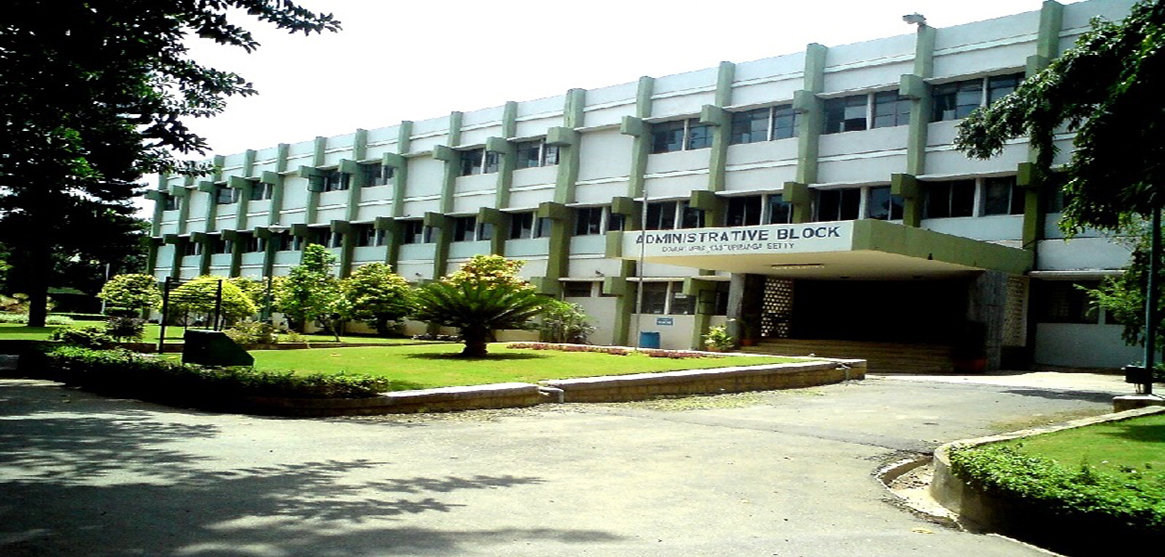
Direct admission In RVCE MCA Program 2025-26
The Department of Master of Computer Applications was established in year 1997 and is the first PG program started in RVCE.
The MCA programme is accredited Multiple times by National Board of Accreditation, New Delhi. Currently, the department is accredited byNBA for five years - 2021-2022 to 2025-2026 and the Department is equipped with state-of-the-art infrastructure and computing equipment supported by high speed Ethernet and wireless networks. Students are encouraged to take up interdisciplinary research and internships and the overall excellence of development of the students are reflected in exemplary placement records.
The faculty is diverse, committed, highly qualified with Doctorates in various specializations. Quality education, blended with rich research experience along with hands on teaching is provided to students. Till date, faculty have successfully executed projects, consultancy, and training worth 1.5 Crores.Current Intake for MCA Programme is 120. The duration of the course, from 2020 admission, is two years (Four Semesters) and curriculum is aimed at interspersing wide spectrum of practice and knowledge in the computing domain in the latest and emerging technologies with inputs and active support from industry experts and strong Alumni.
About Master of computer Application
Department of Master of Computer Applications
- Started in the year 1997
- Affiliated to Visvesvaraya Technological University, Belagavi
- Received academic autonomy in year 2016
- Approved by All India Council for Technical Education (AICTE), New Delhi
- Accredited by National Board of Accreditation (NBA) Multiple times since 2009. Currently Accredited for five years - 2021-2022 to 2025-2026
- Top Rank PGCET Admissions, Intake is 120 students
100% placement opportunities to the students and have a track record of 80% placement in the past three years and 96% internships during the final semester. Salary package of the students is around 7 lakh average per annum and maximum is 25 lakh in the year 2019-20 ongoing placement activity. The recruiters of MCA include JSOL, Accenture, Cisco, JPMorgan, Sapient, IBM, Infosys, CTS, Cerner, Mcafee, Endurance, National Instruments, Texas instruments, CloudThat, Whatfix, Covance, CME group, Tally solutions, Dvara, Smartly built, Thought works and many other IT companies. The Department has academic initiatives with, Cognizant Technology Solutions for Free and Open Source Software and Campus Connect Program by Infosys Technologies
15 Ph.D. holders among faculty members and efficient faculty retention and Published 100 plus publications in international journals/ conferences in the last 5 years.
Completed Research and consultancy projects sanctioned by NRB, DRDO, CSI and other sources around 1 Crore and has ongoing research projects for Rs. 25 lakhs Pioneered Open Source Software usage in and around RVCE campus and development of applications
Admission Procedure
Students have to write Eligibility test PGCET (Government Quota for Karnataka Students) / KMAT (Management Quota for all students) conducted by KEA / KPPGCA respectively every year and notified separately by each organization
URL’s
PGCET: www.kea.kar.nic.in
KMAT: www.kmatindia.com
Program outcome
On completion of the MCA Programme, MCA graduate acquire competencies to:
PO1: Computational Knowledge: Acquire in-depth computational knowledge and mathematics with an ability to abstract and conceptualise models from defined problems and requirements
PO2: Problem Analysis: Identify, formulate, conduct literature survey and solve complex computing problems through analysis as well as provide optimal solutions
PO3: Design / Development of Solutions: Design and evaluate solutions for complex problems, components or processes that meet specified needs after considering public health and safety, cultural, societal, and environmental factors
PO4: Conduct investigations of complex Computing problems: Conduct literature survey to analyse and extract information relevant to unfamiliar problems and synthesise information to provide valid conclusions and interpret data by applying appropriate research methods, tools and design experiments
PO5: Modern Tool Usage: Create, select, adapt and apply appropriate techniques, resources and modern IT tools to complex computing system activities, with an understanding of the limitations
PO6: Professional Ethics: Understand and commit to professional ethics and cyber regulations, responsibilities, and norms of professional computing practices
PO7: Life-long Learning: Engage in lifelong learning independently for continual development to improve knowledge and competence as a computing professional
PO8: Project management and finance: Demonstrate knowledge and understanding of management principles and apply these to multidisciplinary software development as a team member and manage projects efficiently as a leader considering economical and financial factors
PO9: Communication Efficacy: Understand and communicate effectively with the computing community and with society at large, regarding complex computing systems activities confidently and effectively by writing effective reports and design documentations by adhering to appropriate standards, make effective presentations and give / receive clear instructions
PO10: Societal and Environmental Concern: Understand responsibilities and consequences based on societal, environmental, health, safety, legal and cultural issues within local and global contexts relevant to professional computing practices
PO11: Individual and Team Work: Function effectively as an individual, as a member or leader in diverse teams in multidisciplinary environments
PO12: Innovation and Entrepreneurship: Identify a timely opportunity for entrepreneurship and use innovation to pursue and create value addition for the betterment of the individual and society at large